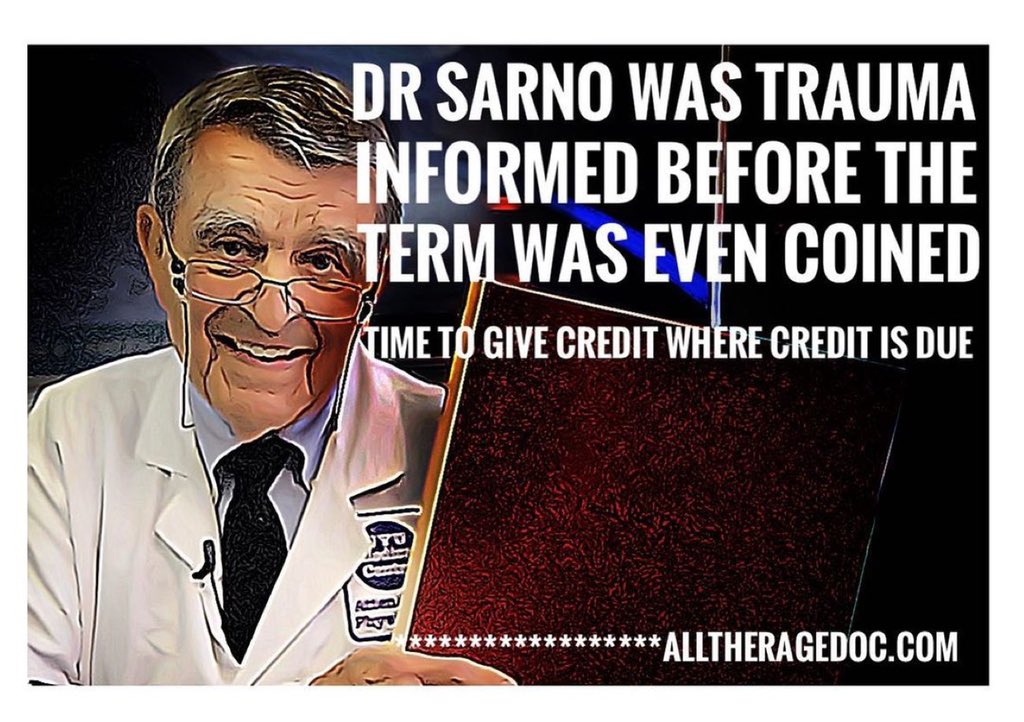
washingtonpost.com/outlook/2021/1… - this post by @nfrankresearch is truly amazing to read. Yet not even he has shared it on Twitter. I went to retweet him after finding the article. The studies by @YoniAshar and @mdonnino that support Sarno mentioned here have been out for 2 weeks
Yet, this is the first article in a widely read paper that mentions the studies and I’m glad that it centers the story around Sarno’s work. When we finished our film 4 years ago we could not get anything written about him. After doing a long read on back pain -
That failed to mention Dr Sarno @voxdotcom felt it necessary to do a follow up because they got a deluge of responses about Sarno. It’s not terrible but the headline was. It read “America’s most famous back pain doctor said pain is in your head. Thousands think he’s right”
I asked them to address this because it was simply untrue and undermined him by creating a false narrative. I’ll share an image of the last paragraph as well. It dismisses his impact - not because he was wrong - but because he was seen as charismatic rather than scientific. 

The article gives a lot of weight to people who disagree with him, and dismisses his insights because he didn’t do randomized control trials to “prove” what was clearly observable. The fact is there is little or no convincing research that supports standard care for back pain
This is why he came to see that emotions played a profound role in the problem. Our film does not set out to prove that Dr Sarno was right about everything- but that ignoring trauma and emotions, and tacitly dismissing them as all in one’s head - was willful blindness.
He saw that the mind and the body were not separate and to treat patients as if they are is “malpractice generally practiced.” Dr Sarno was practicing in a trauma informed way before anyone understood what that meant 

We set out to make our film in 2004. At that point we didn’t have enough awareness about trauma to integrate the idea into the film. We also couldn’t get any support, or figure out how to make it. We started it due to my own personal connection -but I was not going to be in it.
7 years later when I was crippled with pain we re-started the film and I knew I had to be in it to help people understand it from an emotional perspective. We also found the ACE study and @DrGaborMate and Dr David Clarke
Gábor Mate did an amazing job of articulating the ways in which trauma response affects the nervous system in ways that impact auto immune issues. Dr Clarke discovered how our trauma stories affect our gut. They did not base their work on Sarno but it was connected
Right now @DrGaborMate is leading an effort to increase awareness of Trauma. Dr Clarke leads an organization called the Psychophysiologic Disorders Association- PPDA / they have an online conference this month ppdassociation.org/conference - it involves many inspired by Dr Sarno
Trauma Awareness is rising rapidly. Connecting this awareness across fields is important. After finishing our film we found “How Healing Works” by @DrWayneJonas - it highlights how much healing comes from within - and how much our perspective on that shapes the process
I think systems are important - yet they often limit our perspective. To survive in a system we have to agree with it. For the past 70 years there has been a profound resistance to including social emotional factors in health care. Those who tried to were shunned.
Dr Sarno was originally supported in his work by the founder of the Rusk Institute at NYU where he practiced for 50 yrs, but became increasingly isolated as he focused on emotional factors. Science is now proving him to have had profound insight that should not have been ignored
Our film is not simply a portrait of Dr Sarno, nor an argument for his work. We found that any effort to “prove” the validity of his ideas was met with increased skepticism. In the end that’s why it became increasingly personal. That helped people connect with their own emotions
The film can be found at alltheragedoc.com
• • •
Missing some Tweet in this thread? You can try to
force a refresh




